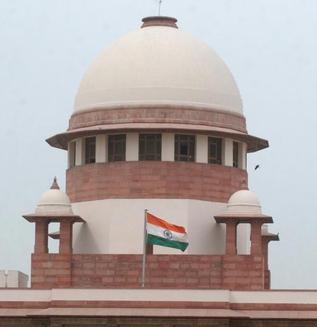New Delhi, Nov 22(PTI) The Supreme Court has ruled that government cannot indefinitely delay its decision on the representations made by detenues under the preventive detention law as it violates the precious right to liberty of every citizen and foreigners residing in the country. A bench of justices A K Ganguly and J S Khehar said in a judgement that courts are duty-bound to protect the fundamental right of liberty to people by issuing a writ of habeas corpus for production of the detenues even if there are technical flaws in the petitions filed on their behalf. “This principle of habeas corpus has been incorporated in our Constitutional law and we are of the opinion that in a democratic republic like India where judges function under a written Constitution and which has a chapter on Fundamental Rights, to protect individual liberty, the Judges owe a duty to safeguard the liberty not only of the citizens but also of all persons within the territory of India,” the bench said. A habeas corpus is a petition filed on behalf of a person whose whereabouts are not known. The powers to issue the writ are vested in the Supreme Court and the High Courts. The apex court passed the ruling quashing the detention of four women Ummu Sabeena, Saliyal Beevi, Salukal Beevi and M Parimala under the Conservation of Foreign Exchange and prevention of Smuggling Activities Act, 1974 (COFEPOSA). The women were detained on March 10 and the Centre took over two months to decide their representations despite the earlier Constitution Bench ruling that such a case should be decided “as soon as may be.” The women had challenged their detention in the Kerala High Court which dismissed their plea, after which they appealed in the apex court.
- Comment
- Reblog
-
Subscribe
Subscribed
Already have a WordPress.com account? Log in now.

The view of the SC on the issue is consistent for the last 50 years. However mere delay in consideration of representation is not the criteria but unexplained delay in such consideration results in continued detention rendering illegal. Even in some of the reported cases of SC, unexplained delay of 7 was held to be illegal.